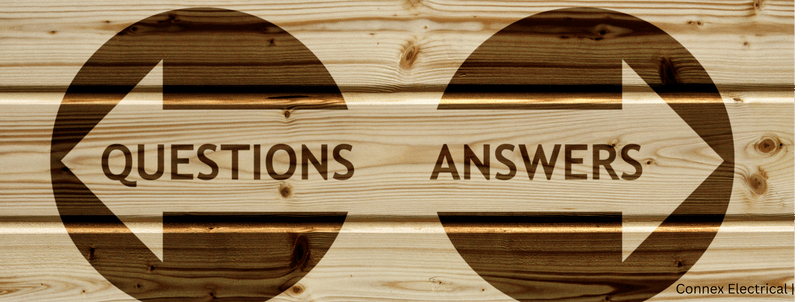Homeowners often encounter electrical issues but may lack the knowledge to address them safely. Understanding the basics of your home’s electrical system can prevent hazards and costly mistakes. Below are the top 8 most common electrical questions answered to help you make informed decisions about your electrical needs.
1. What’s the Difference Between a Fuse and a Circuit Breaker?
A fuse and a circuit breaker serve the same purpose: protecting electrical circuits from overloads. However, they work differently:
- Fuse: Breaks the circuit by melting when overloaded, requiring replacement.
- Circuit Breaker: Trips to disconnect the circuit and can be reset, making it reusable and ideal for modern homes.
Want to learn more about circuit breakers? Check out our Complete Guide to Switchboards for additional insights.
2. Why Do Circuit Breakers Keep Tripping?
Frequent tripping can indicate:
- Overloaded Circuits: Too many devices connected.
- Short Circuits: Faulty wiring or damaged appliances.
- Ground Faults: Unintended current flow between a live wire and the ground.
If your breaker trips regularly, consult a professional to identify and resolve the issue. Learn about 7 Reasons to Hire a Licensed Electrician to ensure safety.
3. What is a GFCI Outlet, and Where Is It Required?
A Ground Fault Circuit Interrupter (GFCI) outlet prevents electrical shocks by shutting off power when it detects a ground fault. These are essential in:
- Bathrooms
- Kitchens
- Outdoor areas
Using GFCIs ensures compliance with safety standards. If you’re upgrading outlets, consider energy-efficient options highlighted in our Home Lighting Tips.
4. How Do I Know If My Electrical Panel Needs Upgrading?
Your electrical panel might be outdated if:
- Breakers trip frequently.
- Lights flicker or dim regularly.
- Extension cords are used often.
Older panels can struggle to handle modern appliances, increasing fire risks. Learn about Switchboard Upgrades to keep your home safe.
5. What Causes Short Circuits?
A short circuit happens when a live wire touches another wire or conductive surface, leading to excessive current flow. Common causes include:
- Damaged insulation
- Improper installations
- Worn-out wires
Short circuits are a serious hazard that can lead to fires. If you suspect one, turn off the power and consult an electrician immediately.
6. Why Are Some Outlets Warm to the Touch?
Outlets should never feel warm or hot. Possible reasons include:
- Overloaded circuits
- Loose wiring
- Faulty appliances
Warm outlets signal a potential fire risk and need immediate attention from a licensed electrician. Not sure when to call an expert? Read our Electrical Safety Tips.
7. Are DIY Electrical Repairs Safe?
While some minor tasks like replacing a light bulb are manageable, most electrical work requires professional expertise due to safety risks. In Australia, it is illegal to perform certain electrical tasks without a license. Always hire a professional for complex jobs.
8. What Are AFCI and GFCI, and Do I Need Them?
- Arc Fault Circuit Interrupters (AFCI): Protect against fires caused by electrical arcing.
- Ground Fault Circuit Interrupters (GFCI): Prevent shocks by cutting power during ground faults.
Both devices enhance safety and are recommended for modern homes.
Conclusion
Understanding the basics of your home’s electrical system can help you identify and resolve minor issues and know when to call in the experts. At Connex Electrical, we’re dedicated to providing you with safe, reliable electrical solutions. If you have more complex concerns or need professional assistance, don’t hesitate to contact us. Your safety is our top priority, and we’re here to ensure your electrical systems are up to date and fully functional.
Keep Your Electrical System Safe with Us
Understanding your home’s electrical system can help prevent accidents and costly repairs. However, some issues require professional attention. At Connex Electrical, we offer expert services, from electrical panel upgrades to lighting installation.
Contact us today to schedule an inspection and ensure your home’s electrical system is safe and efficient. Reach Out Now!
Contact Us for Your Electrical Services in Brisbane, North Brisbane Suburbs
Name: Connex Electrical
Address: 173 Campbell Drive, Mango Hill, Queensland 4509
Phone: 0474 207 609

